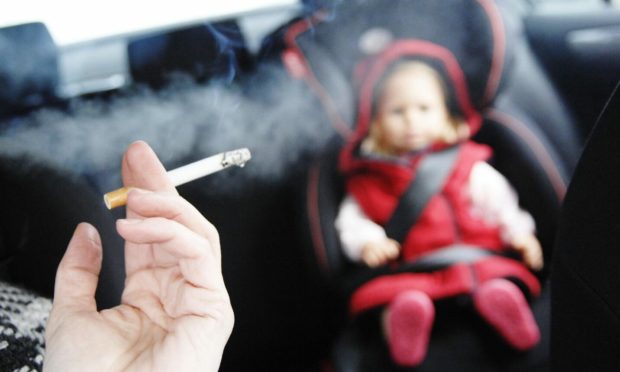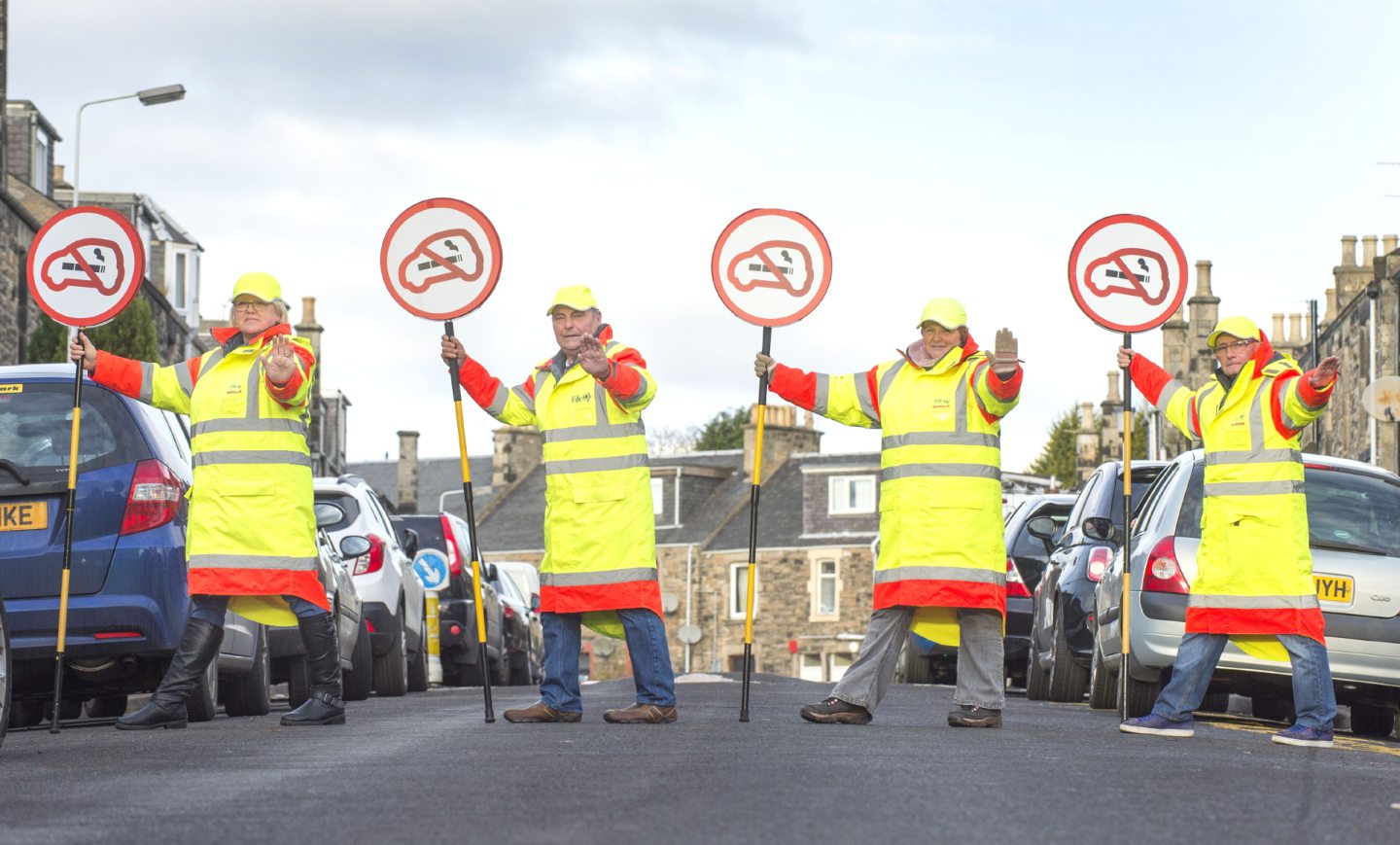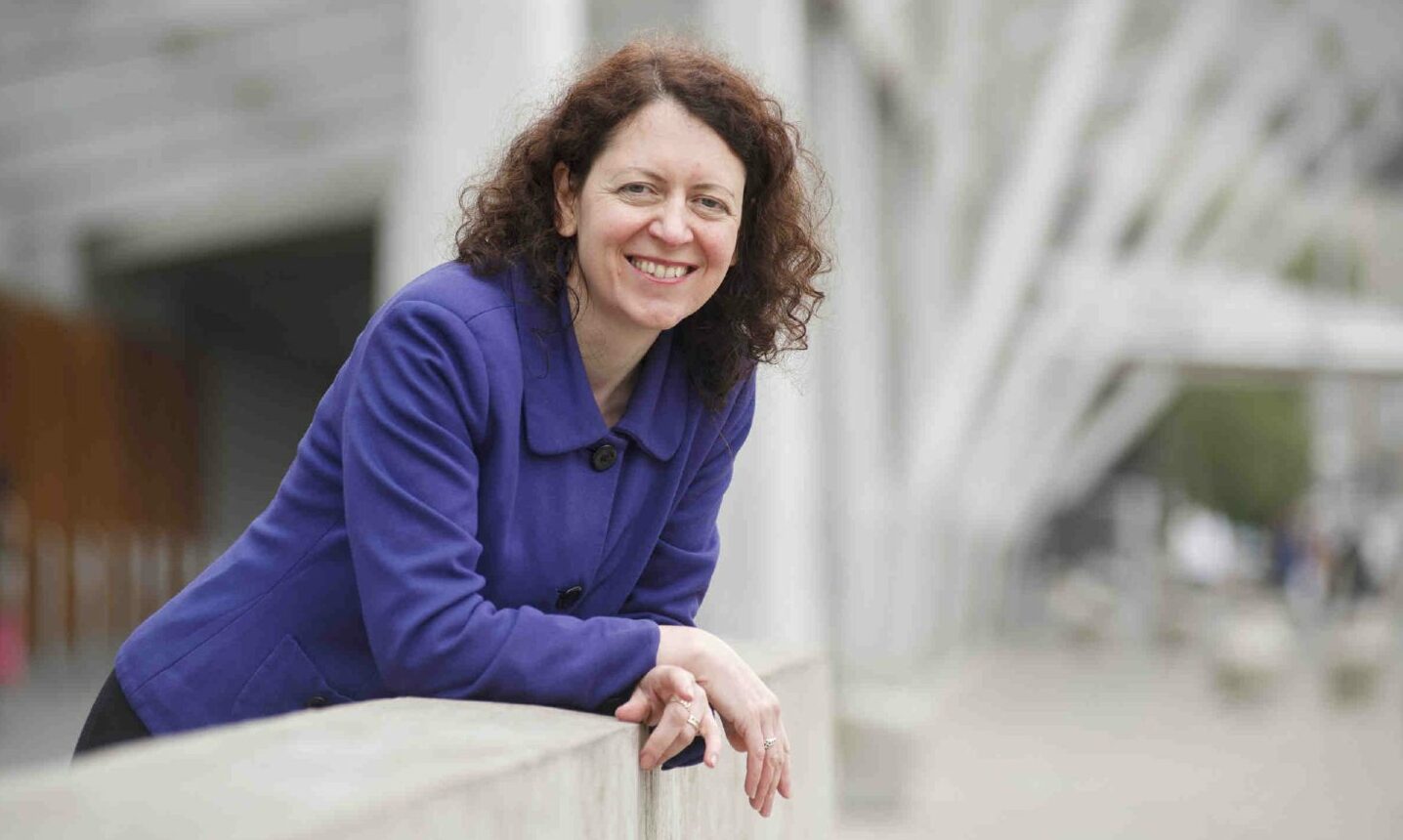Five years on from a ban on smoking in cars with kids, researchers have found proof it is helping youngsters with asthma.
A study from Glasgow University, also involving experts in Aberdeen and Stirling, has linked the law to a drop in hospital admissions.
Since it came into force in 2016, severe asthma hospitalisations for pre-school kids have fallen around 1.5% every month.
Pre-schoolers affected most
The researchers analysed data for more than 32,000 hospital admissions logged between 2000 and the end of 2018.
This let them work with two years of stats following the introduction of the law, which made it illegal to smoke in a car with anyone under 18 on board.
Admissions for severe asthma attacks in under-5s fell “significantly” in this period – but figures for the 5-15 age bracket remained relatively steady.
It is thought this is because pre-schoolers typically spend more time around their parents than older children, so were more affected by the change.
Additionally, they found no change in the stats for other respiratory conditions, such as croup and bronchiolitis.
Car smoking worse than others
Studies have shown cigarettes in cars expose passengers to more second-hand smoke than if they were at home or in a public place.
Even with the windows down, this can quickly cause the air quality to fall below World Health Organisation standards.
Globally, it is thought 170,000 youngsters die as a result of second-hand smoke every year.
As many as one in 12 cases of childhood asthma are estimated to be caused by it.
More work needed to tackle ‘deceitful’ industry
Sheila Duffy, the chief executive of health charity Ash Scotland, said: “For me, the real value in this law was that it reminded everyone of the health harms of tobacco smoke and the need to protect children’s lungs.
“Scotland has a strong record of tackling tobacco and the deceitful industry behind it, but we’ve made little progress since that legislation was passed in 2016.
“Let’s work to prevent the next generation from starting smoking, something which so many adult smokers regret.”
Public Health Minister Maree Todd said: “Children and young people breathe more quickly than adults.
“Their airways are smaller and still developing which means they breathe in more of the harmful chemicals contained in second-hand smoke.
“We are determined to protect children from the harms caused by smoking and to create a tobacco-free generation by 2034.”


